Vatican investigates Catholic group after exorcism claim that Francis is devil's man
On 2 June Herald's leader, Mgr. Clá Dias, unexpectedly resigned and reports emerged of a Vatican investigation into the group
The leader of a Brazilian traditionalist movement that was praised in the past two pontificates has resigned, and a video has subsequently emerged of the leader relaying bizarre claims by one of his priests regarding Pope Francis. Mgr João Scognamiglio Clá Dias, the founder and now ex-leader of the Heralds of the Gospel, can be seen in the video saying that the devil had told the Heralds priest that Francis was “my man”. Satan said Francis is “stupid” and does “everything I want”, Clá Dias says.
But speaking to The Tablet, Fr Angel Veiga, a Rome-based leader of the order, said the video has been “taken out of context”, and what was said in it does not equate to the position of the Heralds. They were simply relaying Satan’s message.
“It’s the Devil, no? The Devil is the father of lies,” Fr Veiga explained, adding that the video showed “a private, intimate conversation between our founder [Clá Dias] and various priests.”
The video, first reported by respected Vatican journalist Andrea Tornielli, shows around 60 priests listening to Mgr Clá Dias relaying what the priest said to him. The things had been said - the priest believed by the devil - when the priest was carrying out an exorcism.
The Heralds of the Gospel were founded in 1998 and received pontifical approval in 2001 under John Paul II, making them the first private association of faithful to receive Vatican approval in the third millennium — an achievement which the group is keen to underline.
They are made up of 200 priests, 2,820 consecrated members and are present in 78 countries. Under Benedict XVI, two other societies grew out of the Heralds.
Although not widely known outside Brazil and some circles in Rome, the Heralds’ religious dress — a Medieval-looking dark brown tunic with a long, Gothic looking cross in the middle — has given them visibility in the Church.
However, on 2 June, their leader Mgr. Clá Dias unexpectedly resigned and reports emerged of a Vatican investigation into the group. A Heralds spokesman in Brazil confirmed the probe saying that it was a routine apostolic investigation which “can occur at any moment for any religious institution.”
It was in the days following Mgr Clá Dias’ resignation that the video emerged.
In it, Plinio Corrêa de Oliveira, the spiritual inspiration for the Heralds, is described as being in heaven “incentivising the death of the Pope” and saying that “the next Pope will be good.”
The devil is said to be seeking to “kill the man that God is calling” who, according to what is said in the video, is Cardinal Franc Rodé, the 82-year-old former leader of the congregation for religious. Cardinal Rodé has been a public critic of Francis.
Corrêa, whose secretary for 40 years was Clá Dias, was known in Brazil for his staunch and trenchant criticism of liberation theology, setting up Tradition, Family and Property (TFP), in 1960, to act as a bulwark against the influence of progressive politics and thought. Earlier this year Francis told a meeting of Religious superiors he is worried by “restorationist” orders that “offer security but instead give only rigidity”.
Under Benedict XVI, however, the Heralds were more in favour with Rome. In a book-length interview with Peter Seewald Benedict XVI praised the Heralds — the only religious movement he mentioned by name in the book — lauding them for being “full of enthusiasm for having recognised Christ the Son of God” and being key “in assisting with a great Catholic rebirth” in Brazil.
In Brazil, the Heralds are known for going into the country’s favelas after the Protestant evangelicals in an effort to reconvert those who chose to abandon Catholicism.
Fr Angel Veiga described the group as a “realisation of an ideal, the ideal to give oneself completely to the service and defence of the Holy Church.”
Mgr Clá Dias, he explained, envisaged a movement that would “give itself completely to the Holy Catholic Church,” that would act as a “truly Catholic institution, a truly religious institution, whose members would live as really consecrated to God.”
One of the main activities of the Heralds is to provide assistance to parish priests in areas where the number of faithful is witnessing a reduction. A division of the groups, called the “Knights of Mary,” can be called on to help strengthen the local Church’s presence in a way reminiscent of the practice of other movements, such as the Neocatechumenal Way.
They also run a programme that helps finance on-the-ground projects called the “Mercy Fund”. This fund is a part of a wider effort on behalf of the Heralds to have some kind of social presence within the Church by helping the poor, the homeless and youths — one of the group’s strongest demographics.
At the heart of the Herald’s spirituality, Fr Veiga stressed, is a calling “to perfection,” the perfection of “Christ [which is achieved] by following his evangelical advice of chastity, poverty, obedience.”
In his letter of resignation, Mgr Clá Dias stated that, despite having to step down as superior general of the group, he remains “the model and living guardian of this [perfect] charism transmitted by the Holy Spirit.”
When asked if they supported Francis’ papacy, Fr Veiga said that the Pope has “inherited a very difficult situation for the Church…he has inherited a lot of problems that don’t have an easy solution.”
He declined to comment on controversies surrounding Francis’ family life document, Amoris Laetitia, although another Herald priest, who was present during the interview, Fr Javier Benjumea, said they preferred to work directly with the “people of God.”
Additional reporting: Isabella Haberstock de Carvalho
PICTURE: Mgr João Scognamiglio Clá Dias ©YouTube
RELATED ARTICLES
GET INSTANT ACCESS
Subscribe today to take advantage of our introductory offers and enjoy 30 days' access for just £7.99




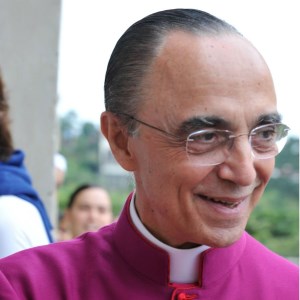
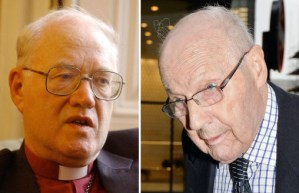
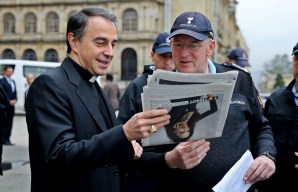
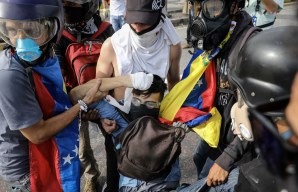


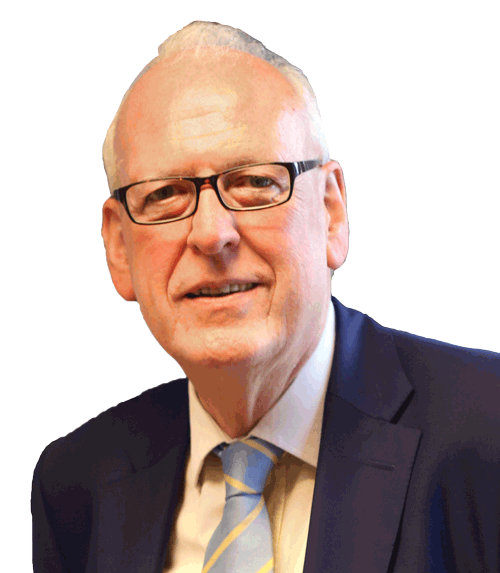
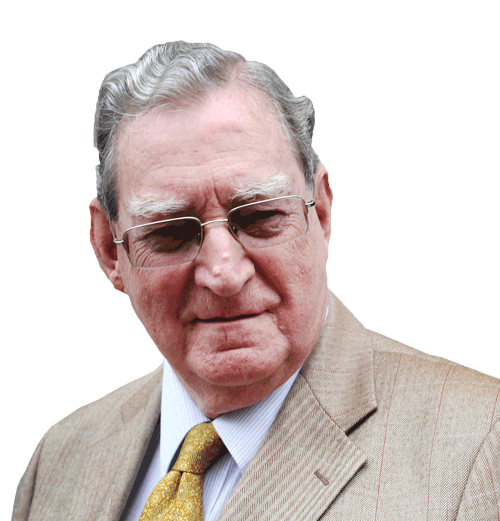

No hay comentarios:
Publicar un comentario